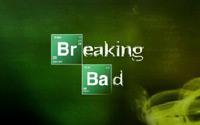Commentary
The Thrilling Finale Of AMC's 'Breaking Bad' Was TV The Way It's Supposed To Be
- by Ed Martin , September 30, 2013
 Last night's
finale of AMC’s “Breaking Bad” did exactly what a long-running serialized television drama is supposed to do -- tie up its plot threads and bring the overall story to a satisfying
conclusion. That may seem like a lightweight statement, but consider the dozens of high-profile shows that pulled millions of viewers along for years only to let them down at the end.
Last night's
finale of AMC’s “Breaking Bad” did exactly what a long-running serialized television drama is supposed to do -- tie up its plot threads and bring the overall story to a satisfying
conclusion. That may seem like a lightweight statement, but consider the dozens of high-profile shows that pulled millions of viewers along for years only to let them down at the end. The fact is that when serialized shows end without bringing their stories to a conclusion, or when they end in a way that feels ill-fitting or incomplete, television actually suffers for it, because viewers who feel burned will often resist committing to new shows for fear of being wronged once again. Netflix and other streaming services have removed some of the tentative unease from the situation, in that people can wait to see if a series lasts beyond a couple of seasons and if positive buzz builds before diving into a catch-up binge and then enjoying the show on its own schedule. Of course, enough people have to be watching a broadcast or cable show to justify its network keeping it on for enough seasons to reach the kind of binge-worthy status “Breaking Bad” enjoyed near the end of its run.
advertisement
advertisement
As I have noted before, I tend not to approach television series as 50- or 100-hour movies, but rather as things to live with and enjoy in limited weekly doses. That's certainly the format advertisers prefer. For me, “Breaking Bad” was outstanding in that capacity. Its growing success over the years strengthened its network, attracted top advertisers, provided smart and tantalizing entertainment for its viewers without ever letting them down, told a story that had not been told before and encouraged people to broaden their appetites for television programming and try new things. That's a win in every direction; a multifaceted success the likes of which are few and far between.
You can't turn to a news program or visit a Web site or social media platform today without experiencing great praise for “Breaking Bad.” I agree with all of it. There isn't much left to say about the finale itself that hasn't already appeared somewhere else in spoiler rich fashion, but just for kicks I'd like to go against the flow for a minute and comment on three things about the last episode that seemed a little too convenient for me.
First, how in the world did wanted man Walter White manage to get out of New Hampshire as the police and the feds descended on the bar from which he had contacted authorities in a moment of self-sacrifice that proved premature … and how did he manage to drive all the way to New Mexico in a car with New Hampshire plates and not be stopped?
Second, how could it be that billionaires Elliott and Gretchen could live in a house filled with fine art and other treasures in a remote location with only a run-of-the-mill entry alarm to protect them? Aren't people in their position targets for trouble? Wouldn't they live in a more secure locale or have stronger security measures in place? (As an aside here, I find myself thinking that there was much more to the story of Walt's early relationship with these two people that was never explored. In fact, I think “Breaking Bad” could have played out as the twisted tale of an everyman who descends into an all-consuming hell of his own design just as effectively without Elliott and Gretchen being a part of it. Most of us are extremely ordinary people like Walter White, but few of us lost out on a life of billion-dollar luxury because of a misstep or two in our pasts.)
Third -- if one cares to nitpick -- the massacre at the end played out a little too neatly. What if the car had been angled a little differently or the men guarding the building that the neo-Nazis were in had been standing on the other side of the vehicle? How exactly could Walter White have planned it in such excruciating detail? Regardless, it was thrilling to watch from start to finish. Jesse strangling the detestable Todd will long be remembered as one of the most deeply satisfying moments of television ever. Walt shooting evil Uncle Jack (and splattering the camera lens) was pretty great, too.
In general, when a series as instantly iconic as “Breaking Bad” comes to an end, its network is left in a bit of a lurch, unable to immediately replace it with a similarly dynamic show. AMC has no such worries. Season Four of “The Walking Dead” begins in two weeks, and while the level of fan enthusiasm for both shows may be at some kind of parity, “Dead” has been known to soar above “Bad” (and every other series on television) in the 18-49 demographic, so AMC should be just fine for now.



